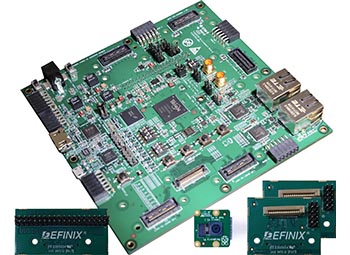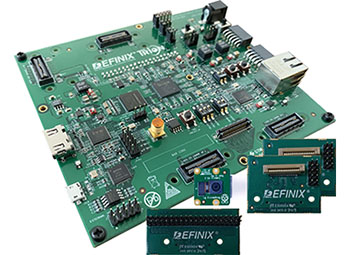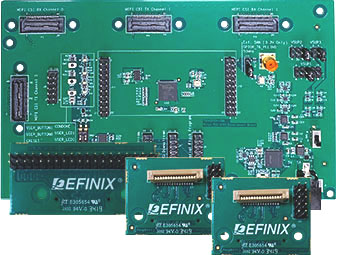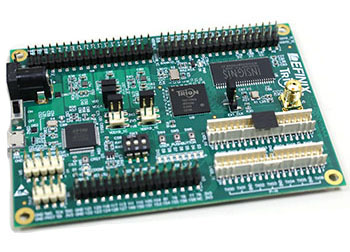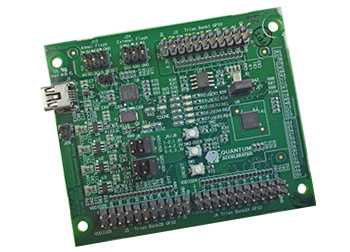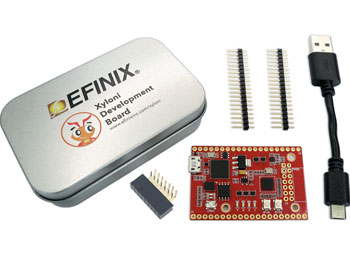Titanium FPGA Family
Titanium FPGAs are fabricated on a 16 nm process, delivering high performance with the lowest possible power and a small physical size. With a range of logic element (LE) densities from 25K to 500K, and compatibility with the Efinix RISC-V SoC cores, they can help you turn a tiny chip into an accelerated embedded compute system.
Trion® FPGA Family
Trion FPGAs are built on a 40 nm lower-power process. They have a logic density range from 4K to 120K logic elements (LEs) and standard interfaces such as GPIO, PLLs, oscillators, MIPI CSI-2, DDR DRAM, and LVDS, making them ideal for low-power applications.
Efinity® Integrated Development Environment
The Efinix® Efinity® Integrated Development Environment provides a complete RTL-to-bitstream flow. With a simple, easy to use GUI interface and command-line scripting support, the Efinity software provides the tools you need to build designs for Trion® and Trion Titanium FPGAs.
The Efinity software is available for free when you purchase a development kit or our FPGAs. Currently, Efinix provides free license renewals.
Development Kits for MIPI CSI-2
Some of our Trion FPGAs have hardened MIPI CSI-2 blocks that offer great camera sensor interfacing plus enough logic for image processing. A hardened DDR DRAM memory controller can interface to a frame buffer or some other system memory. Our MIPI CSI-2 based development kits connect to Raspberry Pi and other cameras so you can prototype vision applications easily.
I/O Expansion Development Kits
Our I/O expansion kits give access to I/Os through the connectors and headers on the board. These boards also have LEDs and switches as well as one more more on-board clock oscillators. You can connect to other boards via the headers and connectors, or use it stand-alone to prove out your processing function.
Maker Kits
For makers and hobbyists, we provide the Xyloni development kit, which is a small form factor, thumb-type board featuring a T8 FPGA. It includes pin headers that you can solder onto the board or use with a breadboard. Additionally, to support the open-source community, Xyloni designs, including our Opal RISC-V SoC, are available on GitHub.
